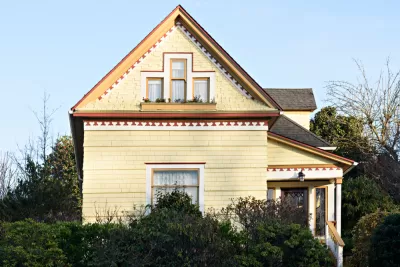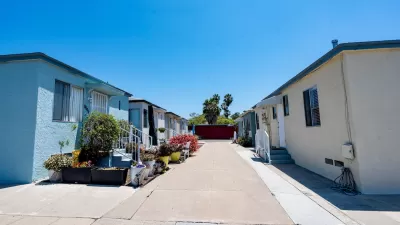For insights into the gentrification of U.S. urban areas, researchers studied high-income buyers of housing in lower-income neighborhoods. To slow gentrification, the housing supply must be boosted, say the researchers.

Recent research conducted by Laurie Goodman, Ellen Seidman, and Jun Zhu focused on the pace of gentrification in metropolitan statistical areas by measuring the rate at which high-income homeowners buy property in low-income neighborhoods based on 2018 Home Mortgage Disclosure Act and 2018 American Community Survey data.
"Our examination reveals that, in many MSAs, high housing costs—resulting from a lack of available housing—cause affluent buyers to look for homes in low- and moderate-income (LMI) neighborhoods. That means cities’ housing supply can determine how fast gentrification may occur. Boosting the supply of housing can slow the pace of new buyers moving into lower-income neighborhoods," say Goodman, Seidman, and Zhu.
A geographical analysis of high-income households in 20 largest U.S. metropolitan statistical areas found that Los Angeles had the highest rate of high-income mortgage borrowing for the purchase of housing in low-income neighborhoods in 2018 at just over 60%. In Chicago, a city with more affordable housing, that rate was only 21%. "Boosting the housing supply by easing local land use, building, and zoning restrictions and encouraging alternative forms of housing like manufactured housing and accessory dwelling units would make homes more affordable and allow more buyers at all income levels to find homes, slowing the pace of gentrification," according to the researchers.
FULL STORY: To Understand a City’s Pace of Gentrification, Look at Its Housing Supply

Planetizen Federal Action Tracker
A weekly monitor of how Trump’s orders and actions are impacting planners and planning in America.

San Francisco's School District Spent $105M To Build Affordable Housing for Teachers — And That's Just the Beginning
SFUSD joins a growing list of school districts using their land holdings to address housing affordability challenges faced by their own employees.

The Tiny, Adorable $7,000 Car Turning Japan Onto EVs
The single seat Mibot charges from a regular plug as quickly as an iPad, and is about half the price of an average EV.

Seattle's Plan for Adopting Driverless Cars
Equity, safety, accessibility and affordability are front of mind as the city prepares for robotaxis and other autonomous vehicles.

As Trump Phases Out FEMA, Is It Time to Flee the Floodplains?
With less federal funding available for disaster relief efforts, the need to relocate at-risk communities is more urgent than ever.

With Protected Lanes, 460% More People Commute by Bike
For those needing more ammo, more data proving what we already knew is here.
Urban Design for Planners 1: Software Tools
This six-course series explores essential urban design concepts using open source software and equips planners with the tools they need to participate fully in the urban design process.
Planning for Universal Design
Learn the tools for implementing Universal Design in planning regulations.
Smith Gee Studio
City of Charlotte
City of Camden Redevelopment Agency
City of Astoria
Transportation Research & Education Center (TREC) at Portland State University
US High Speed Rail Association
City of Camden Redevelopment Agency
Municipality of Princeton (NJ)





























